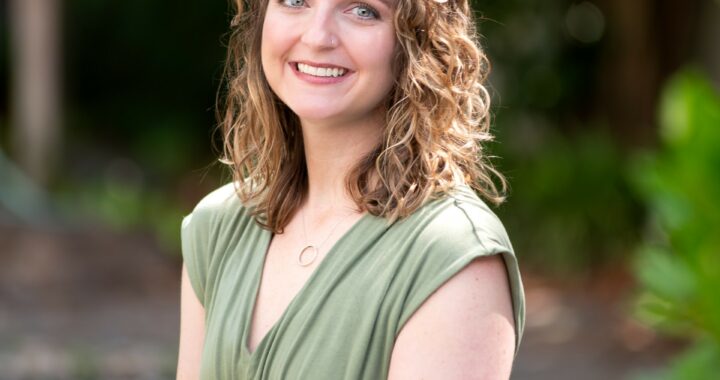University Aids Nationwide Debate Programs Through Consortium
4 min readBy Kaitlin Mayhew
It all started over dinner.
The Debate Consortium, a newly established institution, pairs universities that have strong competitive debate programs with historically black colleges and universities (HBCUs) that have expressed interest in re-launching, or in some cases beginning, debate programs at their respective schools.
The idea for the consortium came to life after one meal between three influential minds in the art of debate in the Commonwealth of Virginia, John Davis, curator of two museums within the Smithsonian Institution, Jeff Poro, author of the story that became the movie “The Great Debaters,” and UMW debate coach communications professor Timothy O’Donnell.
The idea culminated in the Debate Consortium’s most prominent debating event, The 2009 Inaugural Debate Series, held in The Smithsonian Institution’s Baird Auditorium in Washington D.C., Monday.
“To come from a dinner conversation to a presidential inaugural event is quite an accomplishment,” John Davis said, curator for the Smithsonian National Museum of African American History and Culture and the Center for Folklife and Cultural Heritage.
However, the Debate Consortium more than simply sponsors this event; debate itself is an historical institution.
“The tradition of debate in the oldest historically black colleges was quite strong, and it was lost,” O’Donnell said. “And I think we need to build it up again.”
Janice J. Hayne is vice chancellor for student affairs at Fayetteville State University, an HBCU that has already joined and become active in the consortium.
Hayne believes that it is already a success.
“There has been lots of interest,” Hayne said.
Fayetteville State University is one of many schools facing the challenge of restarting a debate team that has been long dormant.
“[The program has been inactive] probably a good ten years,” Haynes said. “We don’t know for sure.”
The debate team at Fayetteville is currently set up as a club so that it can receive university funding. They also have begun offering a course in argumentation to train interested students. The Debate Consortium has been a huge step in giving their debaters real experience.
“One of the things we are doing is trying to create a ‘great debaters’ learning community,” Hayne said.
The three founders of the Debate Consortium created a multi-faceted program. In addition to bringing together established debate teams with HBCUs, eight of which have already joined the consortium, they also plan to sponsor more debate events, create a camp to jump-start debating programs in only a few months, and integrate government institutions into college debate.
The consortium has already been successful in including the U.S. Environmental Protection Agency (EPA) in their Earth Day debates last year. In these debates, UMW as well as two other colleges debated current environmental issues.
Davis asserted that the inclusion of such agencies is beneficial to both sides.
“Agencies such as the EPA are able to sit and judge,” Davis said. “They want to hear what the two sides are.”
Jeff Poro wrote the story for the movie “The Great Debaters,” released last year. The movie not only included an extraordinary example of college debate, the first time a black debate team debated a white team, but it was also the beginning of James Farmer’s debate career.
“If I had written a car crash movie it would have been a thrill,” Poro said. But he asserted that such a film would have lacked the passion and the historical significance that “The Great Debaters” embodies.
“We used some of the momentum from the movie to restart debate at historically black colleges,” Davis said.
UMW has an important place in the history of debate, as the school where James Farmer himself was a professor of history and American studies.
“We have a historic responsibility and we have a namesake and lineage to a historic figurehead,” O’Donnell said of why he believes the debate consortium is such an important program for UMW.
UMW is, as a result of O’Donnell’s efforts, currently one of the most active universities in the consortium. The workshop for the inaugural college debate was held at the Creative Writing and Debate building on College Ave. and William Street.
“We are tethered to [UMW],” Davis said. “We could not have found a finer host. [O’Donnell] has been a leader.”
According to Davis, one of the most important reasons debate programs must continue not only in HBCUs but in all higher education is that he believes debate to be more than just a pastime.
He said it is an art form.
“This activity precedes the founding fathers,” Davis said.
Davis cited historical organizations such as Harvard University’s Spy Club, which was a student group organized in the 1700s.
Although the practice of debate preceded the founders of the United States, it did not exclude them.
“Almost every leader of the American revolution had studied argumentation,” Davis said. “Our country has such a rich history in debate.”
The Debate Consortium is in part Davis’, along with O’Donnell’s and Poro’s, way of bringing classical debate into modern higher education, and ensuring that it reaches every potential institution.
“This is really about helping the HBCUs,” Poro said.
The consortium has not only begun to gain momentum but also supporters, such as the Smithsonian Institution and the White House Initiative on Historically Black Colleges and Universities.


